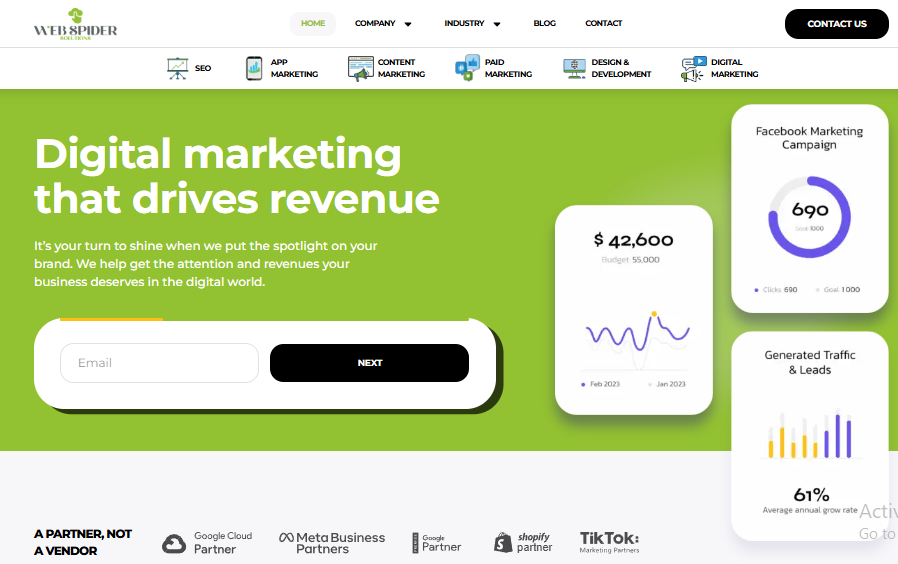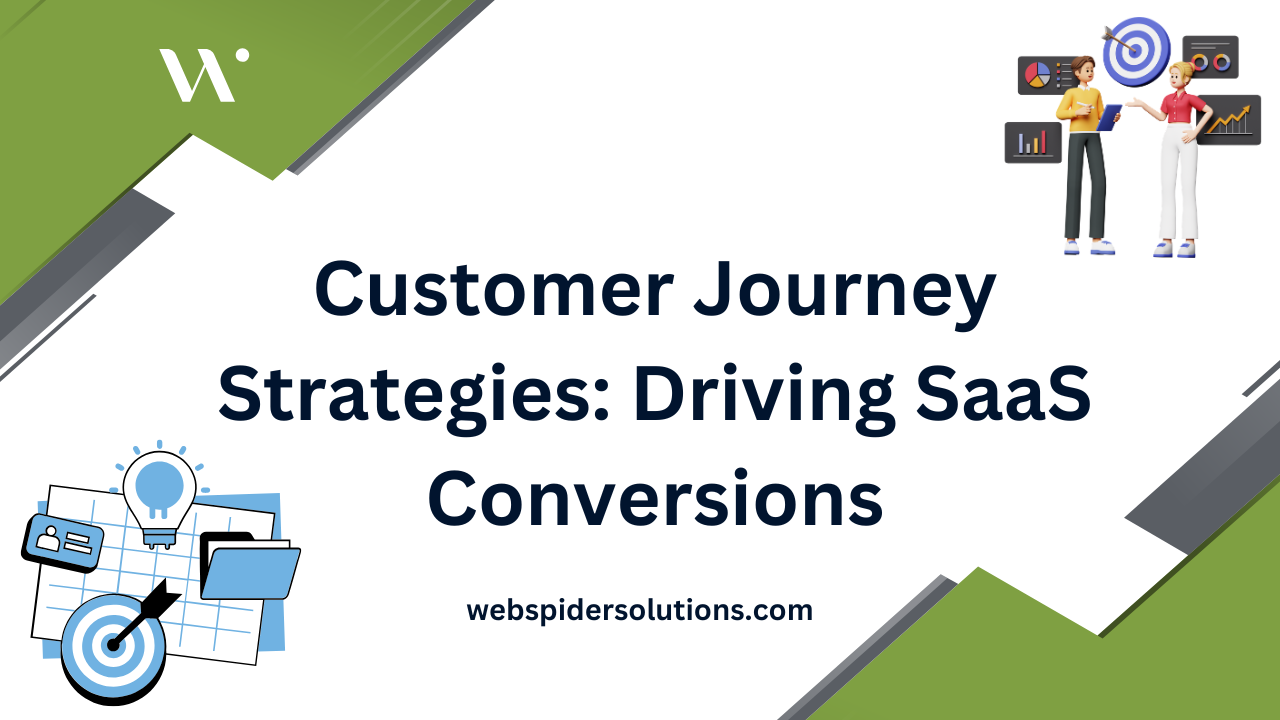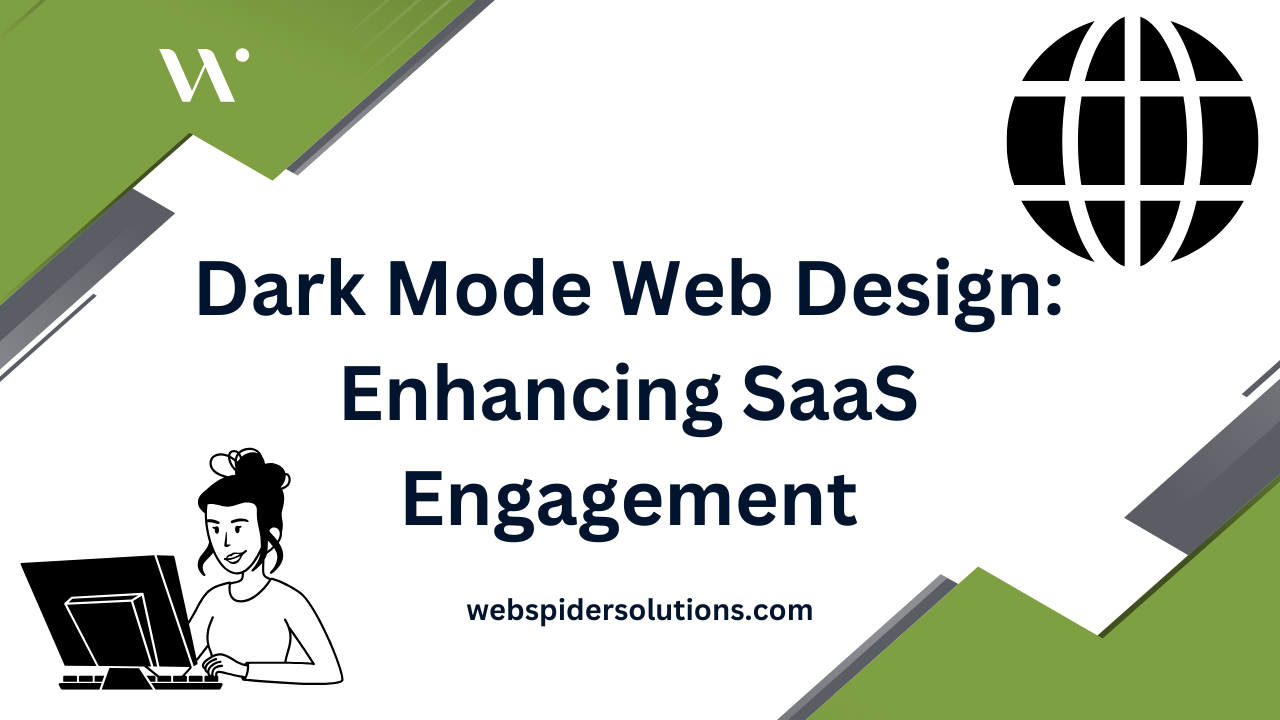Content marketing strategies are getting sharper every year, and over 70 percent of businesses now use multi-channel content approaches to connect with their audience. You might think the biggest challenge is just producing enough content to keep up. Actually, the real winners are doing something entirely different. They are turning data and technology into a secret weapon, building smarter, more personalized campaigns that leave basic content routines in the dust.
Table of Contents
- Understanding The Core Of Content Marketing Strategy
- Steps To Build An Effective Content Marketing Plan
- Tailoring Strategies For Competitive Industries
- Tracking Performance And Optimizing Results
Quick Summary
| Takeaway | Explanation |
|---|---|
| Understand your audience deeply. | Develop detailed audience personas based on demographics and behavioral patterns to create targeted content. |
| Utilize multi-channel content strategies. | Distribute content across various platforms to reach audiences where they engage most effectively. |
| Measure performance with clear KPIs. | Establish specific, measurable metrics to gauge content effectiveness and align with business objectives. |
| Embrace continuous optimization techniques. | Use A/B testing and real-time analytics to refine content continuously and adapt to audience needs. |
| Incorporate emerging technologies. | Leverage AI and machine learning for personalization and predictive insights to enhance content strategies. |

Understanding the Core of Content Marketing Strategy
Content marketing strategy represents a sophisticated approach to connecting with audiences through purposeful, value-driven communication. At its essence, this strategy transcends traditional advertising by creating meaningful narratives that resonate with target consumers while delivering actionable insights and solutions.
Defining Strategic Content Marketing
A robust content marketing strategy is more than producing random content. Explore our comprehensive content marketing approach to understand how businesses can transform their communication framework. According to research from ResearchGate, the core objective is delivering relevant, consistent, and valuable content that attracts and retains a clearly defined audience.
Successful content marketing requires a strategic framework that integrates several critical components. Audience Understanding forms the foundational pillar, demanding deep insights into demographic characteristics, behavioral patterns, pain points, and digital consumption preferences. Businesses must develop comprehensive audience personas that go beyond basic demographics, exploring psychological motivations and communication preferences.
Strategic Content Development
Content marketing strategy demands a systematic approach to content creation and distribution. Organizations need to develop a content ecosystem that aligns with specific business objectives while addressing audience needs. This involves creating interconnected content types that guide potential customers through different stages of their decision-making journey.
The most effective strategies incorporate multi-channel content approaches, recognizing that modern audiences consume information across diverse platforms. This means developing adaptable content that maintains consistent messaging while being optimized for specific channels such as blogs, social media, email newsletters, and video platforms.

Data-driven decision-making plays a crucial role in refining content marketing strategies. Marketers must leverage analytics to understand content performance, audience engagement metrics, and conversion rates. By continuously monitoring and adapting strategies based on empirical evidence, businesses can create more targeted and impactful content experiences.
Technology and Content Strategy
Emergent technologies are dramatically transforming content marketing strategies. Artificial intelligence, machine learning, and advanced analytics provide unprecedented capabilities for personalization and predictive content development. Businesses that integrate these technological tools can create more sophisticated, targeted content experiences that anticipate and address audience needs with remarkable precision.
The future of content marketing strategy lies in creating adaptive, intelligent content ecosystems that seamlessly blend human creativity with technological insights. This approach requires continuous learning, experimentation, and a commitment to understanding evolving audience expectations in an increasingly complex digital landscape.
Steps to Build an Effective Content Marketing Plan
Building an effective content marketing plan requires strategic thinking, meticulous preparation, and a systematic approach that transforms abstract goals into actionable strategies. The process demands comprehensive planning and precise execution across multiple dimensions.
Foundational Strategy Development
The initial phase of content marketing strategy development centers on establishing clear, measurable objectives. Learn more about crafting comprehensive digital strategies that align business goals with content creation. According to Coursera’s content strategy guide, defining precise goals serves as the critical first step in developing a robust content marketing framework.
Businesses must articulate specific outcomes they want to achieve through content marketing. These objectives might include increasing brand awareness, generating qualified leads, improving customer engagement, establishing thought leadership, or driving conversions. Each goal requires distinct content approaches and measurement metrics.
Audience research represents another fundamental component of strategy development. Creating detailed audience personas involves analyzing demographic information, behavioral patterns, professional challenges, digital consumption habits, and psychological motivations. This deep understanding enables marketers to craft highly targeted content that resonates with specific audience segments.
Content Planning and Execution
Content planning transforms strategic insights into practical implementation. The American Society of Association Executives recommends a comprehensive approach that includes content auditing, competitive analysis, and systematic content creation guidelines.
A successful content plan incorporates several critical elements. Content Mapping involves aligning specific content types with different stages of the customer journey. This means developing tailored content for awareness, consideration, decision, and retention phases. Each content piece should serve a strategic purpose, guiding potential customers through their decision-making process.
Diversifying content formats becomes crucial in maintaining audience engagement. Effective content marketing strategies include a mix of blog posts, videos, infographics, podcasts, white papers, case studies, and interactive content. This variety ensures that businesses can reach audiences through multiple channels and cater to different learning and consumption preferences.
To provide a clear overview, the table below summarizes how content types align with various stages of the customer journey, as discussed in the section:
| Customer Journey Stage | Content Type Examples | Strategic Purpose |
|---|---|---|
| Awareness | Blog posts, social media, videos | Attract new audience, build brand |
| Consideration | Case studies, webinars, guides | Educate and nurture prospects |
| Decision | Demos, testimonials, white papers | Facilitate conversion decisions |
| Retention | Newsletters, how-to content | Foster loyalty, encourage engagement |
Measurement and Continuous Optimization
Measurement and analytics transform content marketing from a creative exercise into a data-driven discipline. Marketers must establish clear key performance indicators (KPIs) that directly connect content efforts with business objectives. These might include metrics like website traffic, engagement rates, lead generation, conversion rates, and return on investment.
Technological tools and platforms now offer sophisticated analytics capabilities that provide granular insights into content performance. Machine learning algorithms can help predict content effectiveness, understand audience preferences, and suggest optimization strategies. Continuous testing, experimentation, and refinement become essential in maintaining a dynamic and responsive content marketing approach.
The most successful content marketing plans embrace flexibility. They recognize that audience preferences, technological landscapes, and business environments are constantly evolving. Regular strategy reviews, audience feedback incorporation, and willingness to experiment distinguish exceptional content marketing approaches from merely adequate ones.
Tailoring Strategies for Competitive Industries
Competitive industries demand sophisticated and adaptive content marketing approaches that transcend traditional communication strategies. Success requires a nuanced understanding of market dynamics, audience behaviors, and technological capabilities that enable businesses to differentiate themselves in crowded marketplaces.
Strategic Content Differentiation
In highly competitive sectors, content marketing becomes a critical mechanism for establishing unique brand positioning. Explore our comprehensive digital strategy insights to understand sophisticated market penetration techniques. According to research from the International Journal of Management & Entrepreneurship, small and medium-sized enterprises can achieve competitive advantage by adopting innovative digital marketing strategies that emphasize targeted, high-value content.
Competitive Positioning requires businesses to develop content that goes beyond generic information. This means creating thought leadership pieces that demonstrate deep industry expertise, solve complex customer challenges, and provide unique perspectives that cannot be easily replicated by competitors. Successful content strategies in competitive industries focus on showcasing specialized knowledge, addressing nuanced pain points, and delivering actionable insights.
Keyword research plays a pivotal role in content strategy development. As recommended by Search Engine Land, businesses must conduct comprehensive keyword analysis to understand search intent, identify content gaps, and develop strategies that directly address audience search behaviors. This approach ensures content not only attracts attention but also provides genuine value to potential customers.
Content Quality and Engagement
In competitive industries, content quality becomes the primary differentiator. The College of William & Mary emphasizes the importance of crafting compelling content with attention-grabbing headlines, engaging introductions, and supporting visuals that effectively communicate value.
Effective content in competitive sectors requires a multi-dimensional approach. This involves developing content that serves multiple purposes: educating potential customers, addressing specific industry challenges, showcasing technical expertise, and building trust through transparent, authoritative communication. Video content, interactive infographics, detailed case studies, and expert interviews can help businesses stand out in crowded marketplaces.
Multi-channel content distribution becomes crucial for maximizing reach and engagement. Businesses must strategically promote content across various platforms, including professional networks, industry forums, social media channels, and targeted email campaigns. Each content piece should be optimized for specific platforms while maintaining a consistent brand narrative.
Technology and Personalization
Advanced technological tools are transforming content marketing in competitive industries. Artificial intelligence and machine learning enable unprecedented levels of content personalization, allowing businesses to create highly targeted content experiences that address specific audience segments with remarkable precision.
Data analytics play a critical role in refining content strategies. By leveraging sophisticated tracking and analysis tools, businesses can gain deep insights into content performance, audience engagement patterns, and conversion metrics. This data-driven approach allows for continuous optimization of content marketing efforts.
The most successful content marketing strategies in competitive industries embrace continuous learning and adaptation. They recognize that market dynamics, technological capabilities, and audience expectations are constantly evolving. Businesses must remain agile, experiment with emerging content formats, and maintain a commitment to delivering exceptional value through their content marketing initiatives.
Tracking Performance and Optimizing Results
Performance tracking and continuous optimization represent the backbone of successful content marketing strategies. By implementing sophisticated measurement techniques and data-driven insights, businesses can transform their content from static communication to dynamic, responsive marketing instruments.
Establishing Performance Metrics
Learn more about advanced conversion optimization techniques to enhance your measurement approach. According to research exploring big data analytics in content marketing, advanced analytical tools are revolutionizing how businesses understand content performance and audience engagement.
Key Performance Indicators (KPIs) form the foundation of effective content marketing measurement. These metrics extend beyond traditional quantitative measures like page views and include more nuanced indicators such as engagement depth, content interaction time, conversion quality, and audience sentiment. Businesses must develop comprehensive KPI frameworks that align directly with specific content marketing objectives.
Selecting appropriate metrics requires strategic thinking. Different content types and marketing goals demand distinct measurement approaches. For instance, brand awareness content might prioritize reach and engagement metrics, while bottom-of-funnel content would focus more on conversion rates and direct revenue attribution.
The table below provides a summary of KPIs matched to common content marketing goals, for easy reference:
| Content Marketing Goal | Example KPIs | Primary Measurement Focus |
|---|---|---|
| Brand Awareness | Reach, impressions, shares | Visibility, audience expansion |
| Lead Generation | Form fills, signups, downloads | Quality and quantity of leads |
| Engagement | Time on page, comments, shares | Audience interaction and depth |
| Conversion | Conversion rate, purchases | Sales, action completions |
| Retention/Loyalty | Repeat visits, newsletter opens | Ongoing relationship, loyalty |
Advanced Analytics and Measurement Techniques
Modern content marketing demands sophisticated analytics capabilities that provide granular insights into performance. Machine learning algorithms and artificial intelligence now enable predictive analysis, helping marketers understand not just historical performance but potential future content effectiveness.
Comprehensive analytics platforms integrate multiple data sources, creating holistic views of content performance. These systems track user journeys across different channels, mapping how individual content pieces contribute to broader marketing objectives. By understanding complex interaction patterns, businesses can develop more targeted and effective content strategies.
Content segmentation represents a critical advanced measurement technique. This approach involves categorizing content performance based on various dimensions such as audience segment, content type, distribution channel, and specific marketing objectives. Such granular analysis allows for more precise optimization strategies.
Continuous Optimization Strategies
Optimization is an iterative process that requires continuous experimentation and refinement. Successful content marketing teams establish robust feedback loops that quickly translate performance insights into actionable strategy adjustments.
A/B testing emerges as a powerful optimization technique. By systematically testing different content variations consumers can identify the most effective messaging, design elements, and communication approaches. This scientific approach removes guesswork from content creation, enabling data-driven decision making.
Technological advancements are transforming optimization strategies. Real-time analytics platforms now provide immediate performance feedback, allowing marketers to make rapid adjustments. Automated optimization tools can dynamically modify content based on ongoing performance data, creating increasingly sophisticated and responsive marketing ecosystems.
The most successful content marketing strategies embrace a culture of continuous learning. They recognize that optimization is not a destination but an ongoing journey of refinement, experimentation, and adaptation. By maintaining flexibility and commitment to data-driven insights, businesses can develop content marketing approaches that consistently deliver exceptional results.
Frequently Asked Questions
What is a content marketing strategy?
A content marketing strategy is a comprehensive plan that outlines how a business will create, distribute, and manage content to engage its target audience effectively. It focuses on delivering relevant and valuable information to attract and retain customers.
Why is multi-channel content strategy important for businesses?
A multi-channel content strategy allows businesses to reach their audience through various platforms, catering to different preferences and behaviors. This approach maximizes visibility and engagement, ensuring that content resonates with diverse segments of the market.
How can businesses measure the effectiveness of their content marketing efforts?
Businesses can measure content effectiveness using key performance indicators (KPIs) such as website traffic, conversion rates, engagement metrics, and audience feedback. Utilizing advanced analytics tools can provide deeper insights into how content performs across different channels.
What role does technology play in modern content marketing strategies?
Technology plays a crucial role by enabling businesses to leverage data analytics, artificial intelligence, and machine learning for personalization and predictive insights. This helps in creating more targeted and effective content strategies that align with audience needs.
Ready to Transform Your Content Strategy for 2025?
Struggling to keep up with the fast pace of digital trends or worried your content is not converting as it should? The article has shown that true success takes more than just publishing posts. It requires actionable insights, multi-channel distribution, and tech-driven optimization. If you want to break through the noise and reach your business goals, you need strategies that adapt, personalize, and engage—especially as competition gets fiercer every year. Discover how AI, analytics, and proven storytelling can supercharge your results by visiting our Stories Archives for inspiration rooted in real-life results.

Stop settling for average performance and see how leading-edge expertise can drive your brand forward. Visit Web Spider Solutions to unlock customized digital marketing strategies designed for tomorrow’s challenges. Take the next step today—book a free consultation and get ready to leave your competitors behind.











